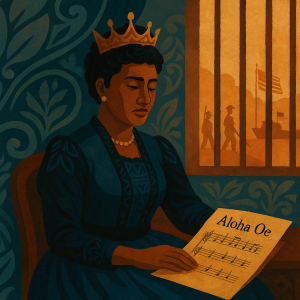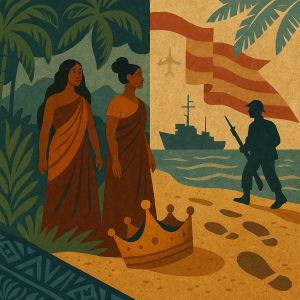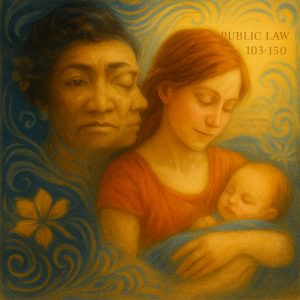When people picture Hawaiʻi, they generally think of what you see on postcards: beaches, leis, mai tais, a sense of escape. But beneath the paradise is a history most tourists never learn. A history shaped by women, stripped away by empire, and finally, a century later, half-acknowledged by the United States.
It matters to me personally because of one strange detail: the year the U.S. finally admitted what it had done was 1993; the year I became a mother.
A Matriarchal Balance
Before colonization, Hawaiian society did not treat women as background figures. Power flowed through both men and women. Female chiefs (aliʻi wahine) held authority, stewarded land, and inherited leadership. They weren’t “exceptions to the rule”, they were the rule. In fact, in the Hawaiian worldview, gender was not a limit on leadership but part of the balance of the natural order.
The most famous of these women was Queen Liliʻuokalani, who took the throne in 1891. She wasn’t ornamental, she was sovereign. A leader with her own mind, devoted to protecting her people and their land.
The Overthrow

Two years later, in 1893, her reign was cut short. A group of U.S.-backed sugar planters, with the visible support of U.S. Marines, staged a coup d’état. They forced the Queen to yield, imprisoned her in her own palace, and handed control to a “provisional government” waiting to hand the islands over to Washington.
Why? Money and war. The sugar barons wanted profits free of Hawaiian oversight. The U.S. military wanted Pearl Harbor as a base for its expansion into the Pacific. By 1898, Hawaiʻi was annexed outright during the Spanish–American War, justified as a matter of “strategic necessity.”
Liliʻuokalani spent the rest of her life writing, composing, and documenting her people’s dispossession. Her most famous composition, Aloha ʻOe, is now recognizable worldwide, often stripped of its meaning—used as background “Hawaiian mood music” in cartoons and films. Few realize it was written by a deposed queen in captivity, mourning the farewell not just of a lover, but of sovereignty itself.

The U.S. Apology, 1993
A full century later, the United States admitted what had happened. In Public Law 103-150, passed in 1993, Congress issued a formal apology for the overthrow of Hawaiʻi’s monarchy. The law states clearly:
“The overthrow of the Kingdom of Hawaiʻi occurred with the active participation of agents and citizens of the United States… The Native Hawaiian people never directly relinquished their claims to their inherent sovereignty.”

100 Years Later…
It was a century too late. It restored no land, returned no crown, undid no wounds. But it mattered as acknowledgment. The empire had said out loud: yes, we took it, and it was wrong.
Why It Matters
This isn’t just a history lesson. It’s a reminder that paradise is political. That the shorelines where tourists take photos were once the seat of women’s power, toppled for profit and war. That a queen’s grief is still being hummed absentmindedly in the background of movies.
It also serves as as a reminder that politics is not distant, it’s personal (no matter where you are). It shapes where we vacation, what we inherit, and what we erase.
For me, the year of apology was also the year of motherhood. A reminder that birth and betrayal, sovereignty and loss, can sit side by side in a timeline.

Dispatch by Cassandra Speaks w/ G
AI-Enhanced Authorship: Acknowledged

